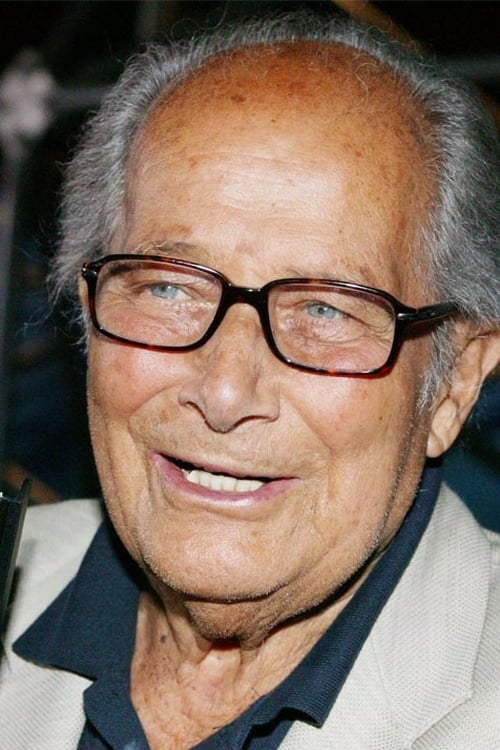
Gillo Pontecorvo
출생 : 1919-11-19, Pisa, Italy
사망 : 2006-10-12
약력
Gillo Pontecorvo, born November 19, 1919 in Pisa and died October 12, 2006 in Rome, is an Italian filmmaker. Of Italian Jewish origin, Gillou Pontecorvo is the brother of Bruno Pontecorvo, a nuclear physicist working for the USSR, and Guido Pontecorvo, an Italian-British geneticist, as well as the grandson of the Jewish industrialist Pellegrino Pontecorvo. He has three sons: Marco (cinematographer and director), Simone (painter) and Ludovico (physicist).
A chemist by training, he quickly turned to journalism and became correspondent in Paris for several Italian publications. In 1941, he joined the Italian Communist Party (PCI), and participated in anti-fascist activities in northern Italy. After the Soviet repression of the Budapest uprising in 1956, he broke with the PCI, while continuing to claim Marxism. He started in cinema after the Second World War as assistant to Yves Allégret1 and Mario Monicelli in particular. From 1953, he produced his first documentary essays (Giovanna, MM, 1956). In 1956, he contributed to an episode of Die Windrose, supervised by Alberto Cavalcanti.
The following year, he directed his first feature film, A Called Squarcio (La grande strada azzurra, produced by Maleno Malenotti, based on a novel by Franco Solinas). Then he describes the concentration camp world in the film Kapò (1960), the story of a Jewish woman who becomes an auxiliary of the Nazis. The film was nominated for an Oscar for best foreign language film in 1961. It gave rise to a famous controversy over the "Kapò tracking shot", which Jacques Rivette had deemed unworthy in an article in Cahiers du cinéma entitled "De l' abjection.” In 1966, he directed his most important film, The Battle of Algiers (La Battaglia di Algeri), a reconstruction of the police action of the French army during the Battle of Algiers which was a fundamental episode of the war. from Algeria. This film was awarded the Golden Lion at the Venice Festival, but remained banned in France for a long time and its exploitation caused a lot of uproar linked to the scenes of torture committed by the French army. In Queimada (1969), dominated by the interpretation of Marlon Brando, he once again attacks colonialism, with an evocation of the Haitian revolution at the beginning of the 19th century. Faced with the commercial failure of Queimada, Pontecorvo stopped making films. He still directed a secondary film, Operation Ogre (Ogro, 1979), on the assassination of Luis Carrero Blanco by ETA during Francoism, and collaborated on the film L'addio a Enrico Berlinguer (1984).
In 1992, he was appointed director of the Venice Film Festival. In 1993, during the 50th edition of the Mostra, Pontecorvo presented Steven Spielberg with an honorary Golden Lion, at the time of the release of Schindler's List. He died on October 12, 2006, at the age of 86, in Rome, Italy.
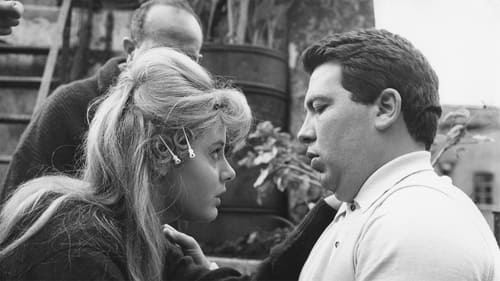
Self
A documentary on the director’s career, featuring interviews with friends, collaborators, and filmmakers.

Self
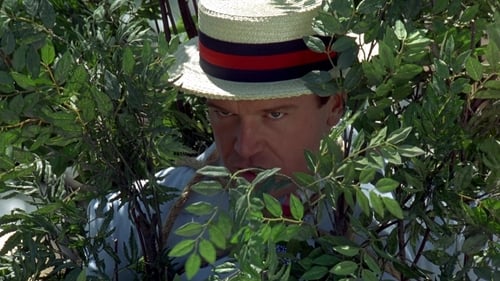
Talk show guest
어느 일요일, 혈기왕성한 부인(Joan Stupid: 제시카 런디 분)과 인간 시한 폭탄인 두 아이를 둔 스탠리 스투피드(Stanley Stupid: 톰 아놀드 분)는 거대한 차에 의해 쓰레기 더미들이 실려가는 것을 목격하고 있다. 세상에, 우리 쓰레기를 훔쳐가는 나쁜 놈들이 있다니. 그리하여, 우리의 스탠리는 4개의 바퀴를 가진 쓰레기 트럭을 쫓기위해서 더 빠른 것을 골라타게 되는데. 그것은 무려 8개의 바퀴를 가진 롤러브레이드였다. 아들 스투피드(Buster Stupid: 벅 홀 분)와 딸 스투피드(Petunia Stupid: 알렉스 맥케나 분) 그리고 혈기왕성한 엄마가 스탠리의 실종을 놓칠 리가 없다. 아버지의 실종 신고를 위해 경찰로 출두한 아이들과 경찰에 납치(?)된 아이들을 구하러 나선 스탠리 부인. 한편, 쓰레기 트럭을 쫓아온 스탠리는 군사실험을 하는 한무리의 장교를 발견하게 되는데 그것은 국제적인 테러리스트들이 남들이 눈치채지 못하도록 쓰레기 더미에서 반란을 모의하는 것이었다. 이에 스탠리는 'Sender'라는 자가 돌아왔다고 확신하게 된다. 몇 년전 스탠리가 우체부로 일하고 있을때(그러나 스탠리는 자신이 미정부의 연락전달자로 알고 있음) 아주 극악 무도한 음모를 하나 알아내게 되었었다. 그것은 다름이 아니라 우편 중에 '발신인(Sener)'이 엄청나게 많다는 사실이다. 그는 대대적으로 수사가 되어야 한다고 느껴 상사에게 이 현상을 보고했으나, 그 다음날 그만 해고되고 만다.

Director
Gillo Pontecorvo, who directed the insurrectionary classic The Battle of Algiers in 1966, returns to the city of Algiers to view the progress Algeria has made - for better or worse - since the departure of the French colonialist forces thirty years earlier.

Himself
Gillo Pontecorvo, who directed the insurrectionary classic The Battle of Algiers in 1966, returns to the city of Algiers to view the progress Algeria has made - for better or worse - since the departure of the French colonialist forces thirty years earlier.

Self

Director
Promotional omnibus film, made for the 1990 FIFA World Cup in Italy, featuring portraits of 12 Italian cities.

Director
A film of Enrico Berlinguer's funeral in Rome, briefly tracing his career as leader of the Italian Communist Party.
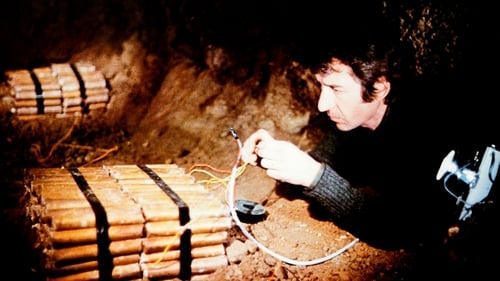
Screenplay
Spain, 1973. Dictator Francisco Franco has ruled the country since 1939 with an iron fist; but he is now a very old and sick man. The future of the weakened regime is in danger. Admiral Carrero Blanco is his natural successor. The Basque terrorist gang ETA decides that he must die to prevent the dictatorship from continuing.

Director
Spain, 1973. Dictator Francisco Franco has ruled the country since 1939 with an iron fist; but he is now a very old and sick man. The future of the weakened regime is in danger. Admiral Carrero Blanco is his natural successor. The Basque terrorist gang ETA decides that he must die to prevent the dictatorship from continuing.
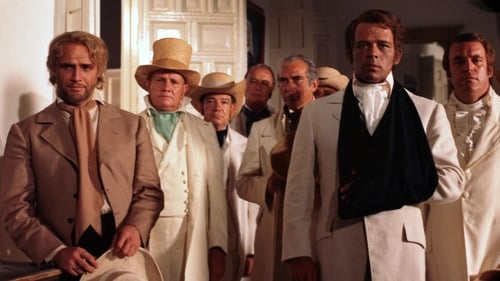
Director
The professional mercenary Sir William Walker instigates a slave revolt on the Caribbean island of Queimada in order to help improve the British sugar trade. Years later he is sent again to deal with the same rebels that he built up because they have seized too much power that now threatens British sugar interests.
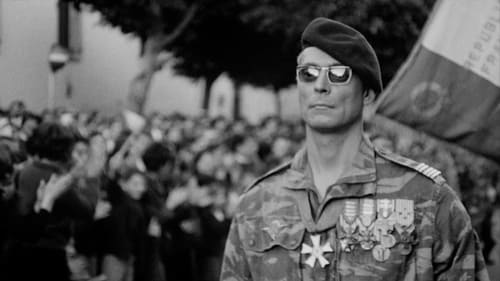
Original Music Composer
1957년 10월 어느 새벽, 알제리 민족 해방 전선(Font de Libration Nationale, FNL) 소속의 나이 든 반군 한 명이 프랑스 군인들의 고문을 견디다 못해 마지막 남은 지도자 알리의 은신처를 누설하고 만다. 은신처를 포위한 프랑스군은 당장이라도 폭파할 태세이다. 오직 해방을 목표로 투쟁해 온 지도자 알리는 생사의 갈림길에서 상념에 잠긴 채 치열했던 지난 3년을 회상한다...
1954년에서 1962년 사이, 9년간 프랑스의 식민 통치에 대항한 FNL의 무장 독립 투쟁과 프랑스군의 정치적 폭력 행위 등을 다큐멘터리 형식으로 재구성한 영화다.

Writer
1957년 10월 어느 새벽, 알제리 민족 해방 전선(Font de Libration Nationale, FNL) 소속의 나이 든 반군 한 명이 프랑스 군인들의 고문을 견디다 못해 마지막 남은 지도자 알리의 은신처를 누설하고 만다. 은신처를 포위한 프랑스군은 당장이라도 폭파할 태세이다. 오직 해방을 목표로 투쟁해 온 지도자 알리는 생사의 갈림길에서 상념에 잠긴 채 치열했던 지난 3년을 회상한다...
1954년에서 1962년 사이, 9년간 프랑스의 식민 통치에 대항한 FNL의 무장 독립 투쟁과 프랑스군의 정치적 폭력 행위 등을 다큐멘터리 형식으로 재구성한 영화다.

Director
1957년 10월 어느 새벽, 알제리 민족 해방 전선(Font de Libration Nationale, FNL) 소속의 나이 든 반군 한 명이 프랑스 군인들의 고문을 견디다 못해 마지막 남은 지도자 알리의 은신처를 누설하고 만다. 은신처를 포위한 프랑스군은 당장이라도 폭파할 태세이다. 오직 해방을 목표로 투쟁해 온 지도자 알리는 생사의 갈림길에서 상념에 잠긴 채 치열했던 지난 3년을 회상한다...
1954년에서 1962년 사이, 9년간 프랑스의 식민 통치에 대항한 FNL의 무장 독립 투쟁과 프랑스군의 정치적 폭력 행위 등을 다큐멘터리 형식으로 재구성한 영화다.

Screenplay
제2차 세계대전 당시, 부모와 함께 강제수용소로 보내진 유태인 소녀가 살아남기 위해 신분을 위장하고 카포로 살아가는 처절한 운명을 그린 이야기.

Director
제2차 세계대전 당시, 부모와 함께 강제수용소로 보내진 유태인 소녀가 살아남기 위해 신분을 위장하고 카포로 살아가는 처절한 운명을 그린 이야기.
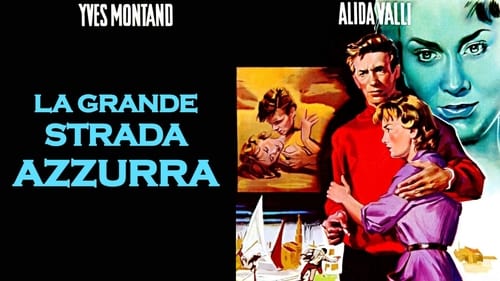
Screenplay
Squarciò, a fisherman, lives with his family on a small island off the Dalmatian coast of Italy. Like his fellow villagers, Squarciò struggles against harsh living conditions, a scarcity of fish in nearby waters and exploitation by the local wholesaler. But while the other fishermen continue to use nets, he goes out to the open sea to fish illegally with bombs. But Squarciò borrows money, loses his boat, and in a moment of supreme desperation, has to bomb directly off-shore, causing the hatred and rejection of his fellow fishermen. Trying to save his family, Squarciò and his young sons sail their new boat out beyond the local waters and bomb-fish again. But this time, the sea exacts a terrible toll…

(uncredited)
Squarciò, a fisherman, lives with his family on a small island off the Dalmatian coast of Italy. Like his fellow villagers, Squarciò struggles against harsh living conditions, a scarcity of fish in nearby waters and exploitation by the local wholesaler. But while the other fishermen continue to use nets, he goes out to the open sea to fish illegally with bombs. But Squarciò borrows money, loses his boat, and in a moment of supreme desperation, has to bomb directly off-shore, causing the hatred and rejection of his fellow fishermen. Trying to save his family, Squarciò and his young sons sail their new boat out beyond the local waters and bomb-fish again. But this time, the sea exacts a terrible toll…

Director
Squarciò, a fisherman, lives with his family on a small island off the Dalmatian coast of Italy. Like his fellow villagers, Squarciò struggles against harsh living conditions, a scarcity of fish in nearby waters and exploitation by the local wholesaler. But while the other fishermen continue to use nets, he goes out to the open sea to fish illegally with bombs. But Squarciò borrows money, loses his boat, and in a moment of supreme desperation, has to bomb directly off-shore, causing the hatred and rejection of his fellow fishermen. Trying to save his family, Squarciò and his young sons sail their new boat out beyond the local waters and bomb-fish again. But this time, the sea exacts a terrible toll…

Director
An international anthology about the struggles of female workers around the world.
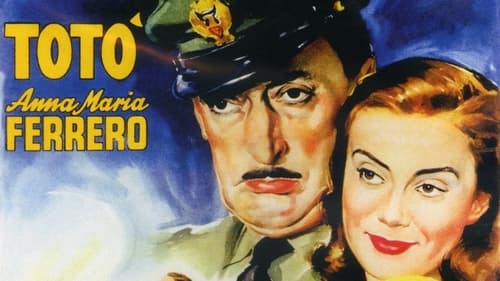
First Assistant Director
During a police raid at Villa Borghese, the agent, a widower named Antonio Caccavallo, stays to get better acquainted with the young Carolina.

Writer
This short is set in the early 1950s in a small textile factory in central Italy (Prato). Giovanna and her fellow female workers decide to enact a protest against the direction of the factory's dismissal plan, by occupying the factory and continuing to work until the proprietor cancels the dismissals. None of these women can really afford to lose their jobs, as it is the only income in the family. All workers receive moral and material support from their families, apart from Giovanna, who bravely endures her husband's disapproval. Almost all the women hold out for thirty-five days in spite of the proprietor's attempts to break their resistance. At first he blocks the road to the factory, then he cuts off electric power to increase their isolation; finally, he tries to convince them to accept the dismissal of at least a smaller number of them. But the women overcome these obstacles, determined to resist...

Director
This short is set in the early 1950s in a small textile factory in central Italy (Prato). Giovanna and her fellow female workers decide to enact a protest against the direction of the factory's dismissal plan, by occupying the factory and continuing to work until the proprietor cancels the dismissals. None of these women can really afford to lose their jobs, as it is the only income in the family. All workers receive moral and material support from their families, apart from Giovanna, who bravely endures her husband's disapproval. Almost all the women hold out for thirty-five days in spite of the proprietor's attempts to break their resistance. At first he blocks the road to the factory, then he cuts off electric power to increase their isolation; finally, he tries to convince them to accept the dismissal of at least a smaller number of them. But the women overcome these obstacles, determined to resist...
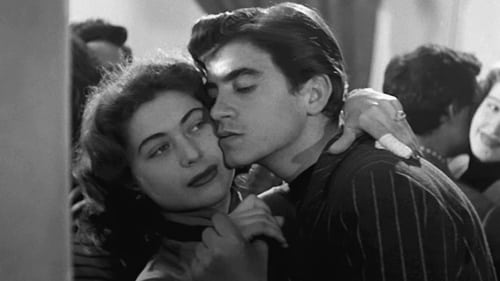
First Assistant Director
Six separate episodes exploring themes of love, sex and romance in the Italian capital. "Paid Love" offers a glimpse into prostitution; "Attempted Suicide" features would-be suicides discussing their despair; "Paradise for Three Hours" depicts an evening at a provincial dance hall; "Marriage Agency" follows an investigative reporter posing as a husband-to-be; "Story of Caterina" tells the story of a young unwed mother forced to abandon her child; and "Italians Stare" catalogues the girl-watching techniques of Italian men.
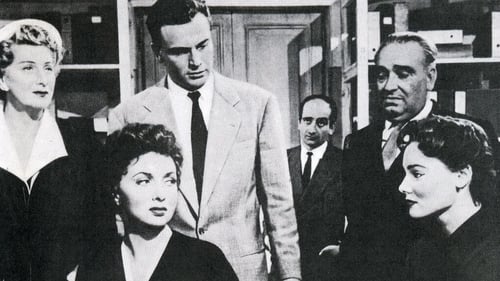
First Assistant Director
A group of "respectable" people are all partly responsible for the suicide of a servant girl. They are pounced upon by a wily blackmailer, who knows that these people will pay dearly rather than inform on themselves or others.
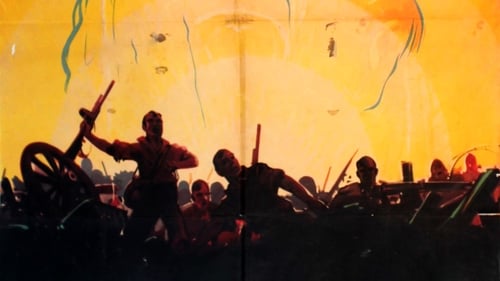
Pietro
A neorealist tribute to the Italian resistance fighters of World War II.

